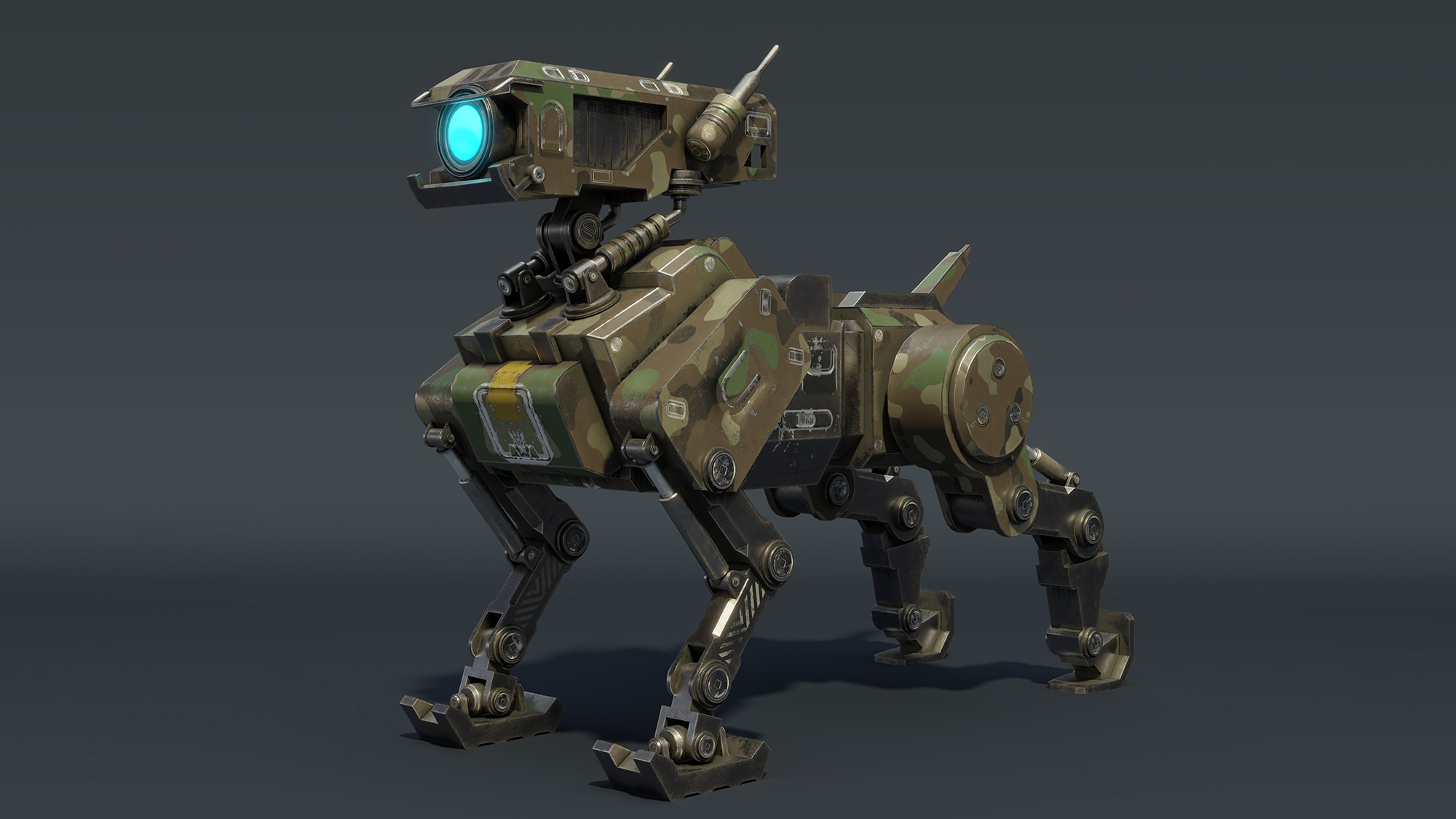It's too late to let slip the robodogs of war now we have ransomware
Why bother with killer robots when one dodgy email attachment can shutdown whole organisations?


TV and film have a lot to answer for when it comes to misconceptions of artificial intelligence. Despite rapid advancements in the field, there will never be a bionic man (or woman), David Hasselhoff will never have an autonomous car to fight crime and robots bearing a remarkable resemblance to Arnold Schwarzenegger will never travel back in time to kill someone’s mum. We have much better ideas these days.
Yet people who should know better are still making statements that sound like they get their intel from the synopsis of a science fiction movie, rather than the facts of the real world.
During Sky News’ coverage of Remembrance Sunday, General Sir Nick Carter, the UK’s chief of defence, suggested the country’s armed forces should be supplemented by a fleet of Terminators within 10 years. “I suspect we could have an army of 120,000, of which 30,000 might be robots, who knows,” he said.
Bookending specific figures with “I suspect” and “who knows” isn’t the best quote to give an international broadcaster, particularly if the aim is to get more money from the government. Chancellor Rishi Sunak recently postponed a spending review that reportedly involved multi-year defence funding with investment in robot warfare. Carter said he was “going to argue for something like that” to help “modernise” the UK’s armed forces.
This seems to be anything but modern, though, as expensive remote-controlled military hardware, such as drones, have been around for years. If anything, it’s perplexing that a senior military figure would still be so keen on building killing machines in an age where whole organisations can be shut down with just a dodgy email attachment.
If Carter literally wants robot soldiers, then he needs to look at Boston Dynamics. The famous, yet unprofitable, maker of robodogs and headless running machines has been at it for years and is yet to make anything that would be useful in battle – or anywhere for that matter.
Better yet, why not look to Russia and its alleged involvement in most large-scale ransomware campaigns. Whole towns in Florida were shut down last year due to successful attacks and 2020 is littered with examples of effective penetration of large organisations.
Sign up today and you will receive a free copy of our Future Focus 2025 report - the leading guidance on AI, cybersecurity and other IT challenges as per 700+ senior executives
Obviously, I would rather have no wars at all, but if we have to, it makes more sense to me to spend our tight recession budget on tools for cyber warfare and not on autonomous tanks and robot soldiers. 2020 has shown us the benefits of remote working, surely that can also include our armed forces?
Bobby Hellard is ITPro's Reviews Editor and has worked on CloudPro and ChannelPro since 2018. In his time at ITPro, Bobby has covered stories for all the major technology companies, such as Apple, Microsoft, Amazon and Facebook, and regularly attends industry-leading events such as AWS Re:Invent and Google Cloud Next.
Bobby mainly covers hardware reviews, but you will also recognize him as the face of many of our video reviews of laptops and smartphones.
-
 Hackers are using LLMs to generate malicious JavaScript in real time
Hackers are using LLMs to generate malicious JavaScript in real timeNews Defenders advised to use runtime behavioral analysis to detect and block malicious activity at the point of execution, directly within the browser
-
 Developers in India are "catching up fast" on AI-generated coding
Developers in India are "catching up fast" on AI-generated codingNews Developers in the United States are leading the world in AI coding practices, at least for now
